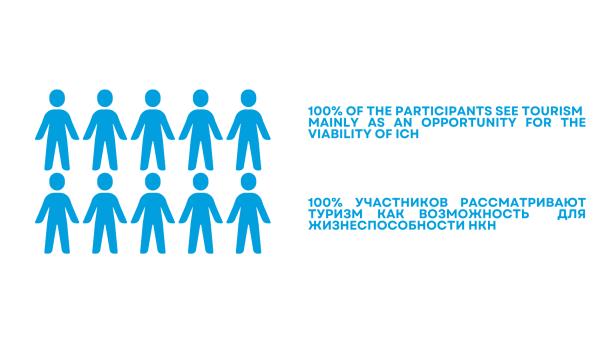News
UNESCO Almaty Facilitates Discussions on the Interrelations between Intangible Cultural Heritage and Sustainable Tourism

Sub-regional workshop "Safeguarding of Intangible Cultural Heritage and Sustainable Tourism" took place from 11 to 13 September 2023. It was organized by the UNESCO Almaty Regional Office and the International Training Center for Intangible Cultural Heritage in the Asia-Pacific Region under the auspices of UNESCO (CRIHAP). Dr. Tamara Nikolic was the main facilitator for this event.
Tourism plays a significant role in the global economy, influencing cultural and natural heritage as well as the lives of local communities. The goal of the workshop on "Safeguarding of Intangible Cultural Heritage and Sustainable Tourism" was to present the latest findings in the field of intangible cultural heritage (ICH) and sustainable tourism and to share practices that contribute to the preservation of cultural heritage and sustainable tourism. The event aimed to strengthen the knowledge and skills of facilitator trainers to effectively develop and support local, regional, national, and international initiatives in the field of tourism and ICH.
Dr. Tamara Nikolic, a UNESCO facilitator, noted that the rapid development of the tourism industry presents both risks and valuable opportunities for the sustainability of various forms of intangible cultural heritage (ICH). Drawing from recent research and relevant policies on ICH and tourism from around the world, the facilitator explained the connection between ICH and sustainable tourism from social, economic, and environmental perspectives through case analysis.
During the workshop, a survey was conducted among participants, revealing that 100% of the participants see tourism as an opportunity for the viability of ICH and do not perceive it as a threat.

Another key conclusion from this workshop is the need for support in developing tourism activities that could contribute to the sustainability of ICH expressions, protect their rights, and create meaningful interactions with visitors. The workshop provided participants with a wealth of knowledge and practical tools for developing sustainable tourism and safeguarding intangible cultural heritage. It is hoped that this knowledge will contribute to the development of tourism in Central Asia while considering the rich cultural heritage of the region.









